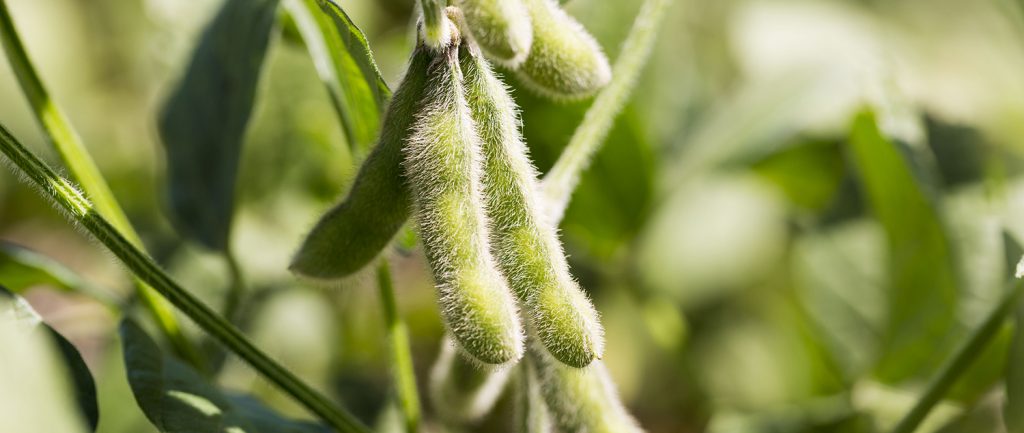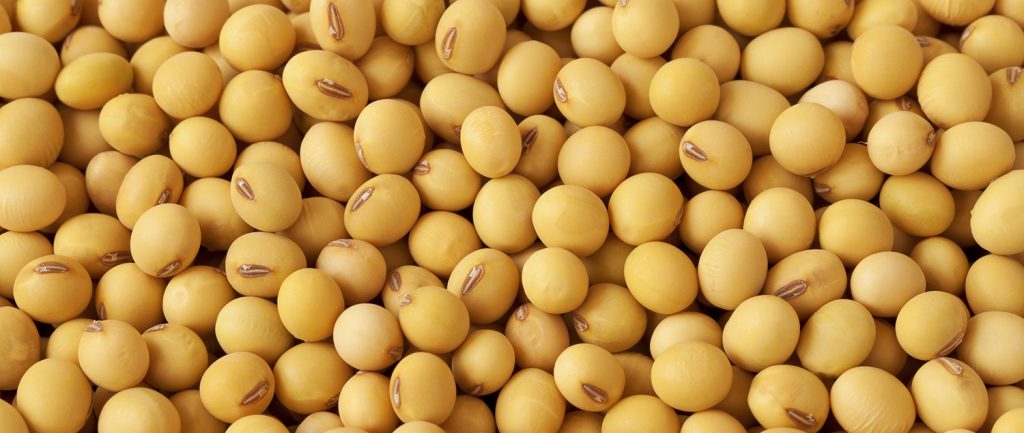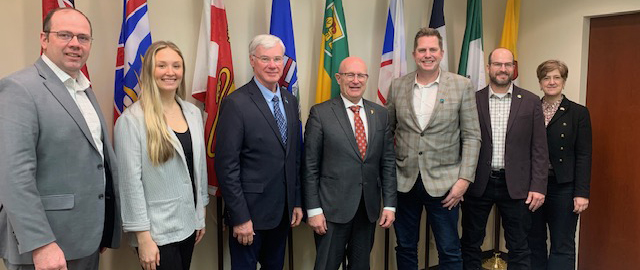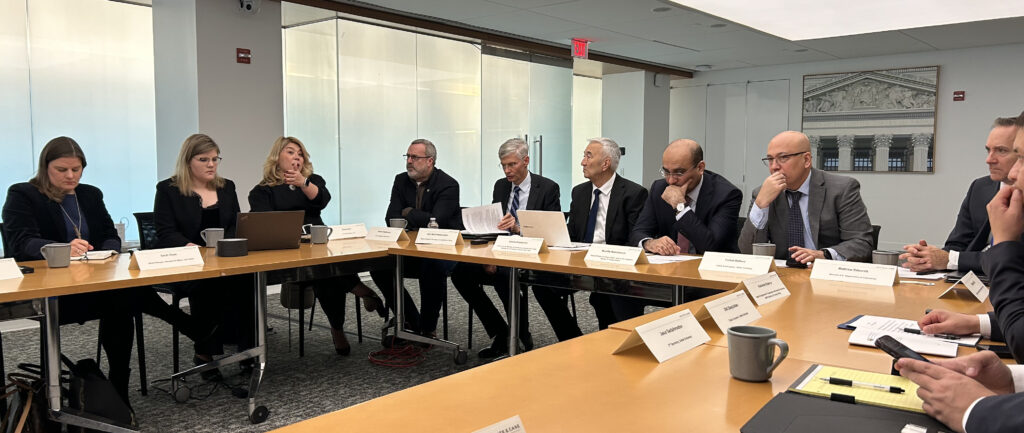As an unabashed political wonk, Wheaton farmer Jamie Beyer didn’t quite know what to expect when she represented the soybean industry during a trade mission to Germany and Poland alongside the U.S. Soybean Export Council (USSEC).
She returned home with plenty of news to share with her fellow farmers.
“For me, who likes working on policy, it was a unique trip and a glance into how the (European Union) functions, which is a patchwork,” said Beyer, who represents the Minnesota Soybean Growers Association (MSGA) on the American Soybean Association Board of Directors.
Beyer joined North Carolina farmer Reggie Strickland to promote U.S. Soy at the 63rd annual European Commodities Exchange Conference in Warsaw, Poland. While attendance reached around 3,000, Beyer said many conversations centered around concerns following Cargill’s recent sale of its Barcelona soybean crush facility.
“That really was sending a shock wave through the EU,” Beyer said. “Was it because of energy prices or this (deforestation) rule or they know the U.S. will have more meal? Nobody really had a clear answer.”
Beyer and Strickland were pressed on how they intend to comply with the EU’s deforestation rule, which is set to begin in January 2025. Beyer declared the deforestation rules, which require strict levels of crop segregation and traceability across six different commodities (including soybeans) as confounding and unrealistic, adding uncertainty to the marketplace. However, she added that officials she met with understand that the deforestation issue isn’t a United States problem.
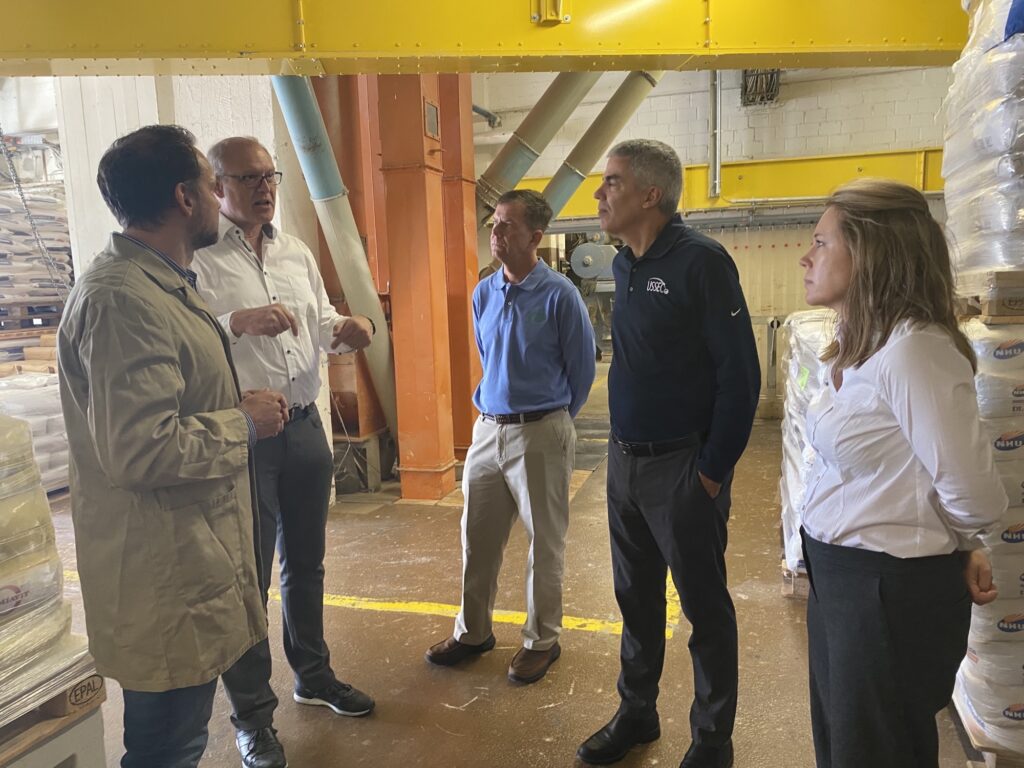
“Our consolidated transportation system is how our crop remains competitive,” Beyer said. “To dismantle that through this rule is going to increase costs. I felt my role there was to explain as a farmer the impossibility of what they’re asking for for the U.S. crop.”
Germany is the world’s sixth-largest soybean meal exporter and third largest importer of soybean meal.
MSGA’s collective efforts with the Minnesota Soybean Research & Promotion Council to increase soy shipments via the Great Lakes St. Lawrence Seaway System is attractive to EU customers, along with the sustainability efforts shown through the Minnesota Agricultural Water Quality Certification Program.
“Our approach to using the Port of Duluth and using this on a small scale is exactly what they’re looking for,” Beyer said.
The USSEC delegation was concerned by one prediction calling for the end of German’s livestock industry and possibly the entire EU because of the deforestation rule.
“It was alarming to me that people feel that’s a viable option,” she said “There’s no level of calories that we can produce to replace meat.”
Other visits on the tour included meetings with Bunge and ADM. Beyer was amazed at the spotless conditions of a German feed mill, along with learning the country mixes up to 2,000 individual recipes for their livestock farmers – and offers same-day delivery.
“Germany had the cleanest feed mills I’ve ever been in,” she said, “and they don’t use augers – they use air pressure to transport all their products, even on the farm, which I’d love to see.”
Following the visit, Beyer was back on the farm, tending to the 2023 harvest.
“It wasn’t an ideal time,” she said, “but I think it was important.”


